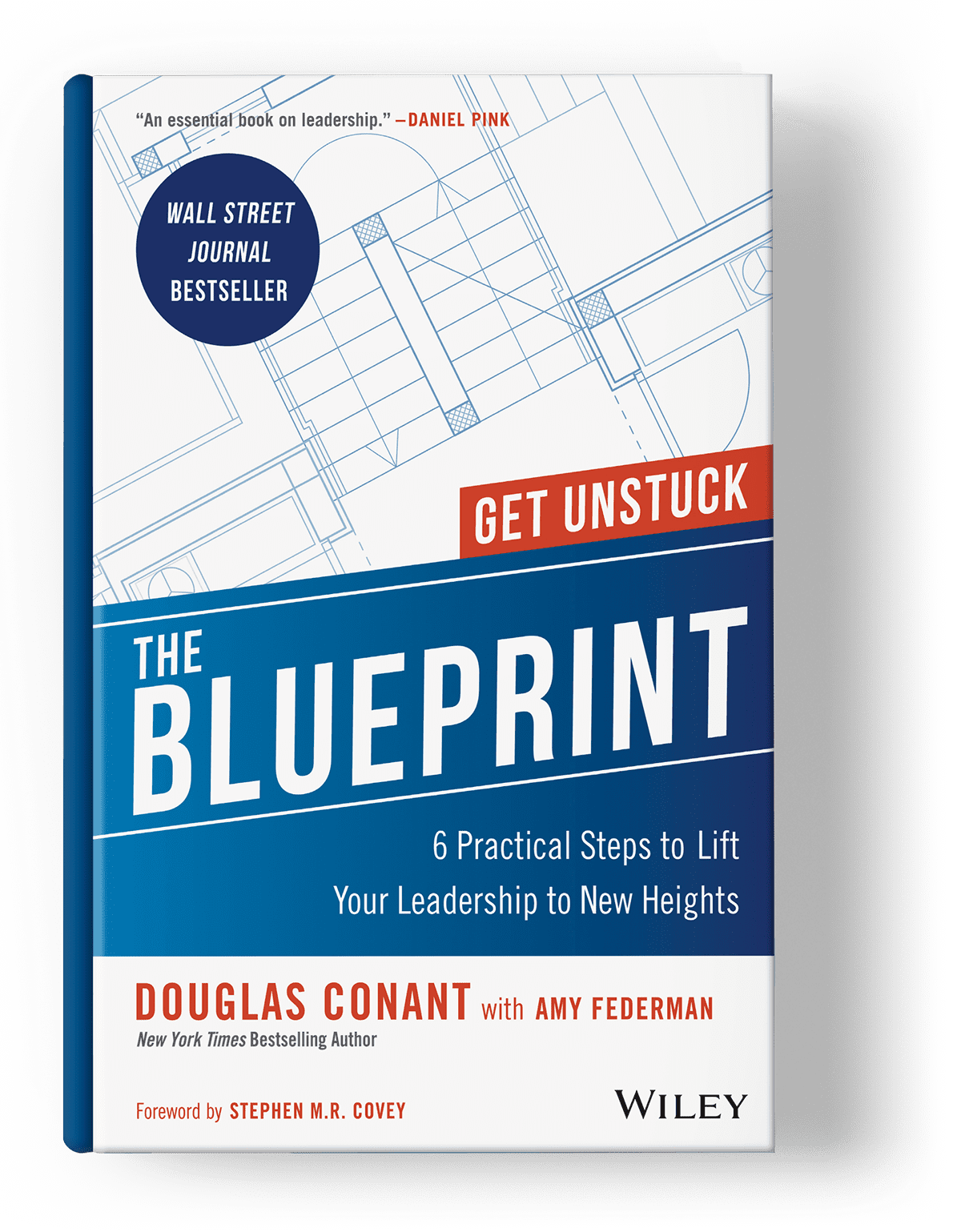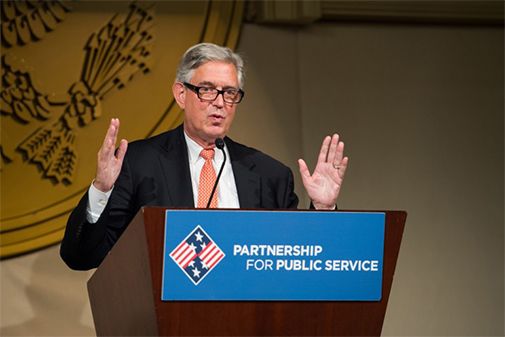With Independence Day on the close horizon, we felt inspired to reflect on the leadership of our first president. As we considered the bold stewardship of George Washington we were struck by the persistent question, “what makes a leader?” Washington wrestled with leadership as he led an army of minimally trained farmers to fight valiantly to forge a new country. As he and his fellow revolutionaries battled to create the United States of America that we know today, it was not their titles or rank that distinguished their actions, it was their principled behaviors, their dedication to their mission, their fortitude, their collaboration, their courage in the face of enormous obstacles, and their belief in each person’s capacity to make hard sacrifices for something larger than themselves. We found three distinct answers to the question, “what makes a leader?” in George Washington’s legacy and none of them had to do with his title. In fact, these three lessons help clarify that it is not now, nor has it ever been, the title that makes the leader, but the purpose-driven behaviors of people compelled to bring about change.
“Remember that it is the actions, and not the commission, that make the officer, and that there is more expected from him, than the title.” George Washington
A Leader:
1. FOCUSES ON THE WORK, NOT THE PRIZE.
In the wake of the Continental army’s triumph over the British, Washington could have accepted glory and lavish titles. But he didn’t want these trappings of leadership or victory. He wanted only to return to his home in Mount Vernon to live peacefully in the free republic he had helped to create. But it was not to be so. The delegates at the Constitutional Convention of 1787 believed in him with such ardor, they all but demanded his candidacy. They had abiding faith in his leadership. Not because of his title. But because of who he was — and how he had continually led people faithfully with integrity and aplomb.
Washington ultimately answered the people’s call to serve as President but he did so with a clear-eyed focus on the important work of governing — and with a wariness of any grandeur that might accompany his position. Famously, he initially refused payment for the presidency, believing that it was ill-advised to receive compensation for public service. Washington’s devotion to serving the people, and bringing to life a larger ideal of American independence and prosperity, were infinitely more important to him than the pomp of his title or the fanfare of being President.
As leaders, we should be mindful of Washington’s dedication to the work of governance, and his eschewing of the prizes that could have accompanied it. The work is what makes us leaders, not the title. We have observed that when leaders become preoccupied with the trappings of success, it can cause them to veer off course. Conversely, when we devote ourselves authentically to the pursuit of ever-better leadership, it naturally puts our career trajectory in a positive place. The best leaders immerse themselves in the work of bettering themselves and their organization; they don’t obsess after some prize. And, those who achieve leadership success through devotion to their craft often find the level of fulfillment to be deep and abiding, regardless of what their title may be.
It was not their titles or rank that distinguished their actions, it was their principled behaviors, their dedication to their mission.
2. CONVEYS CLARITY OF PURPOSE.
Washington was not a brilliant military strategist. The source of his success had less to do with battlefield prowess and more to do with his ability to rally people around a shared purpose. Washington believed freedom from British rule was worth fighting for. He knew his purpose undoubtedly and pledged his everlasting fidelity to its realization and he continually shared this certitude with his troops. He reminded people why their contributions mattered, and successfully tied the everyday challenges to the larger mission. Because all of his behaviors were anchored in a clear purpose, he was able to mobilize people and keep them together even in the face of seemingly insurmountable adversity. Washington understood that people need to know the “why” before they can engage with the “what” or the “how.”
We should consider this lesson as we walk our own leadership paths. Much too often, people become leaders because doing so was merely the next logical step in their careers. They know what they want to get from the position (i.e. a new challenge, more prestige, better pay) but many have a tenuous grasp on what they hope to give. They are vague about their purpose. But purpose is essential. Clarity of purpose provides a profound well of energy to draw upon when the going gets tough, and a reservoir of vitality much deeper than a superficial understanding of our work. The Continental Army was met with enormous obstacles — they were hungry, they were cold, many didn’t even have shoes — but they were able to prevail because the purpose of their efforts was clear and compelling beyond a shadow of a doubt. Only when our purpose is powerful, magnetic, and explicit can we effectively share it, bring people together around it, and use it to consistently show people why their contributions matter. (tweet this)
3. LEADS BY EXAMPLE.
As our nation’s first president, Washington was acutely aware of how important it was for him to model the behavior and values he hoped to instill in the nation for generations to come. He knew he would set the precedent for Presidential behavior and he felt a duty to set a tone for leadership conduct that could endure through many successors. Writing to James Madison he remarked, “As the first of every thing, in our situation will serve to establish a Precedent, it is devoutly wished on my part, that these precedents may be fixed on true principles.”
Purpose is essential.
His example was bolstered by his humility. In his farewell address, he warned against the perils of factionalism and partisanship and laid out a noble vision for the fate of the country — while remaining relatable and gracious. Washington wrote, “I have, with good intentions, contributed towards the organization and administration of the government the best exertions of which a very fallible judgment was capable.” (emphasis ours). With this language, he humanizes himself, reminding citizens that he, like everyone, is fallible and flawed, but is nonetheless devoted to doing his best to build something meaningful and sustainable.
We’ve got to do the same as leaders. When we are tasked with bringing about change, delivering high performance, and creating superior value, we must show the way with our own actions and words. We must show that we care before we ask others to care; we must demonstrate that we value people, before we ask people to value the goals of the enterprise, and we must hold ourselves to a higher standard before we ask those we lead to uphold those same soaring standards. Throughout it all, if we are authentic, focused on the mission, not the glory, and we let people know there will be bumps along the road – they will be more likely to trust us, to follow us, and to carry out our leadership legacy with their own actions long after our tenure has ended.
As we go forth to celebrate Independence Day with our families, friends, and communities, let’s carry the leadership lessons that Washington instilled. Let’s remain faithful to our purpose, honest in our devotion to the work, not the prize — and let our own actions humbly guide the way for others. Have a happy and safe Fourth of July!
(Photo: via Unsplash)






0 Comments